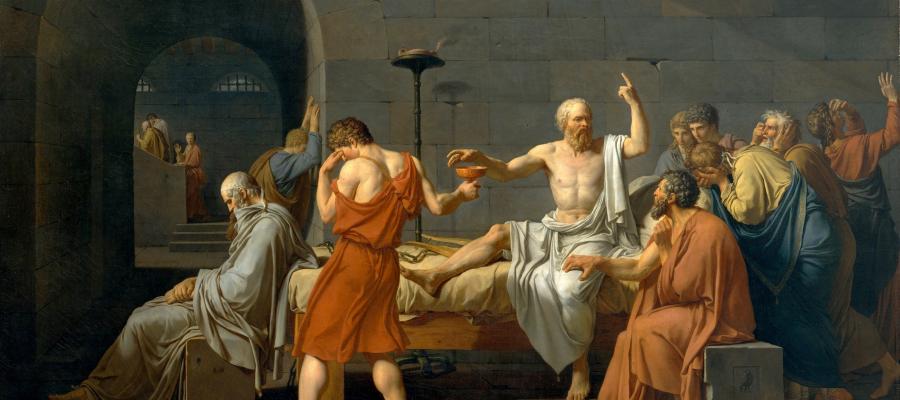Plato
Sep 14, 2004From his theory of the Forms, to his views about morality, justice, and the soul Plato was one the greatest and most influential philosophers of all time.

This week in The Atlantic, Rebecca Newberger Goldstein posed a question:
What happens when a society, once a model for enlightened progress, threatens to backslide into intolerance and irrationality—with the complicity of many of its own citizens? How should that society’s stunned and disoriented members respond? Do they engage in kind, resist, withdraw, even depart?
Goldstein is wondering what a citizen should do when they feel like democracy has failed. How should we react when the people around us have vote in a way we find horrible? Though that sentiment might apply to many citizens in the modern world, Goldstein looks at a much older example: the vote to execute Socrates.
Goldstein describes how in 399 B.C.E., Athens was worn down from war, and seeking to Make Athens Great Again, the citizenry found a scapegoat in the old philosophical gadfly Socrates. Finally fed up with his criticism of Athen's claimed moral authority, a jury of 501 citizens voted to execute the old man.
After the vote—which represented trial by a jury of peers, a pinnacle of supposed democratic justice in the ancient world—Socrates's greatest student, Plato, was inconsolable. Disgusted with his once-beloved city, he left Athens and traveled far and wide, venturing down to Egypt to study astronomy, and to southern Italy to study with the mathematically mystical Pythagoreans.
Goldstein remarks on how Plato's political theories changed during his journeys--and then reflects on what it means that Plato eventually came home. Later in his life, Plato came back to Athens to start his Academy, which Goldstein calls the first university in Europe.
The journey of Plato might well reflect the soul-searching many citizens are experiencing right now—but, even in the best of times, reading about the famous philosopher’s reaction to injustice can serve us all well.
Read the whole article: https://www.theatlantic.com/magazine/archive/2017/04/making-athens-great...
Comments (2)
420_ZaRAthUsTRa
Sunday, March 19, 2017 -- 2:16 PM
We are living in turbulentWe are living in turbulent times... Times in which we must turn to philosophy
It would be shameful of us to repeat the mistakes of the past and drive away intellectuals, as Plato decided to do
josCh
Thursday, February 20, 2025 -- 8:25 PM
Plato’s insights on thePlato’s insights on the fragility of democracy remain strikingly relevant today. His concerns about the erosion of civic virtue and the rise of demagogues echo in modern times. A similar dynamic can be seen in various social structures, including strategic decision-making in games. The balance of risk and reward, much like in 3pattiapk , often determines long-term success or downfall.